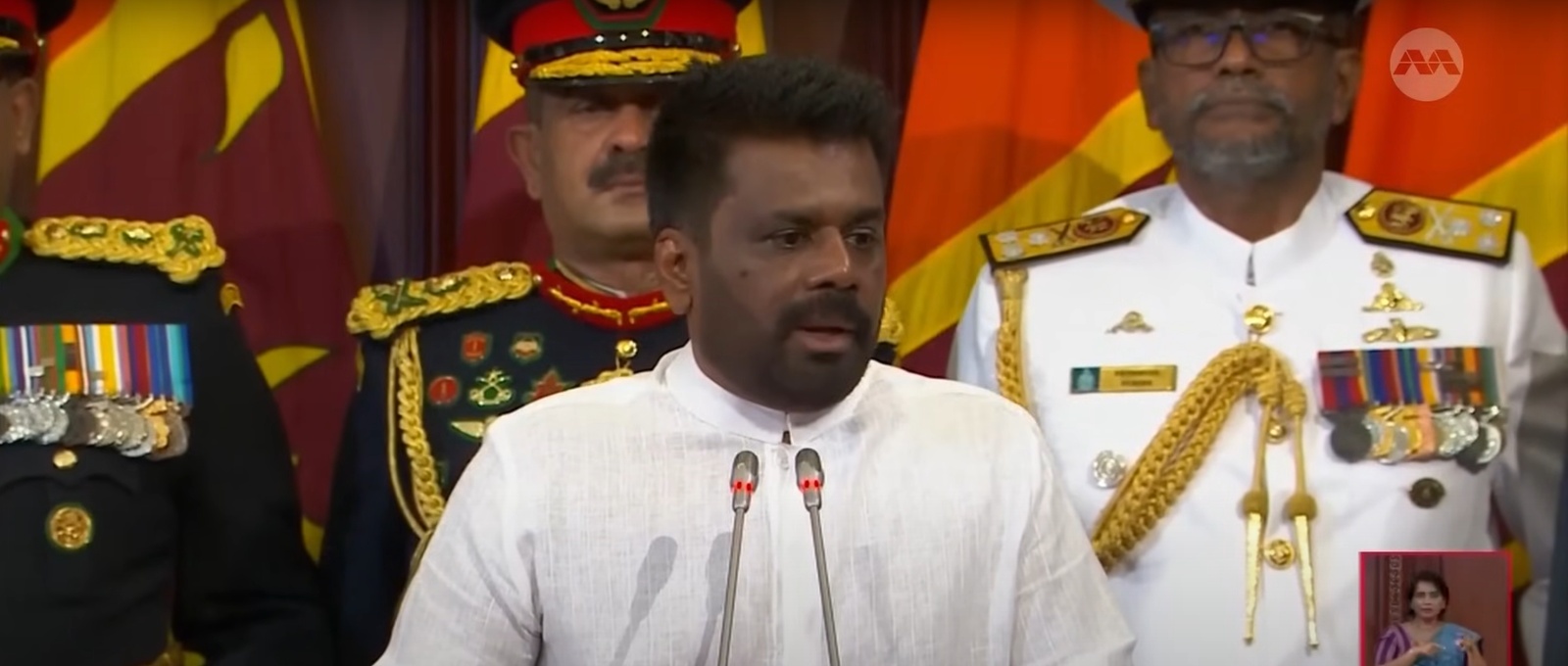
In a historic turn of events, Anura Dissanayake, a prominent figure with Marxist leanings, has won the Sri Lankan presidential election. His victory signals a major shift in the nation’s political dynamics, as it is the first time in recent years that a candidate with a clear leftist agenda has taken control of the highest office.
Dissanayake’s triumph reflects growing dissatisfaction among the Sri Lankan populace with traditional political parties, which have dominated the country’s governance for decades. His success highlights the rising appeal of socialist and progressive policies, which resonate with a population that has faced economic struggles, social inequalities, and political instability in recent years.
Who is Anura Dissanayake?
Anura Kumara Dissanayake is the leader of the Janatha Vimukthi Peramuna (JVP), or the People’s Liberation Front, a party with Marxist roots that has been active in Sri Lanka since the 1960s. Originally a revolutionary movement, the JVP has transitioned into a more mainstream political entity, yet it retains its left-wing ideals focused on economic justice, anti-imperialism, and grassroots empowerment.
Dissanayake has long been a vocal critic of neoliberal economic policies and has called for reforms to address the widespread inequality in Sri Lanka. His campaign centered around promises of creating a fairer economic system, reducing corruption, and improving the welfare of the working class.
The Key Factors Behind His Victory
Several factors contributed to Dissanayake’s unexpected yet momentous victory. Chief among them was the public’s disillusionment with the traditional political elite, many of whom have been embroiled in corruption scandals, mismanagement of resources, and failure to address the country’s mounting debt crisis.
Moreover, the economic challenges Sri Lanka has faced in recent years, including inflation, unemployment, and the aftermath of the COVID-19 pandemic, have eroded trust in centrist and right-wing leaders. Dissanayake’s promises of social reform, redistribution of wealth, and his pro-worker stance struck a chord with voters who felt left behind by the existing political framework.
Additionally, his stance against foreign interference, particularly from global financial institutions like the International Monetary Fund (IMF), garnered support from nationalists and those wary of Sri Lanka’s increasing reliance on foreign loans.
Implications of a Marxist-Leaning Presidency
Dissanayake’s presidency is expected to usher in a period of significant policy changes. Given his Marxist roots, he is likely to focus on wealth redistribution, expanding public services, and reducing the influence of global capital in Sri Lanka’s economy. His leadership could challenge the current economic order, prioritizing social welfare programs over foreign investment-driven growth.
International relations may also see a shift, particularly in Sri Lanka’s dealings with countries like China, India, and Western nations. While Dissanayake has expressed a desire to maintain diplomacy, his anti-imperialist rhetoric may lead to more cautious foreign policies, especially in terms of economic agreements that could be perceived as exploitative.
Challenges Ahead
Despite his victory, Anura Dissanayake faces substantial challenges. Sri Lanka’s economy is in a precarious state, with high levels of debt, inflation, and unemployment. Implementing his ambitious social and economic reforms will require balancing the demands of his voter base with the practicalities of governance. Furthermore, resistance from the business community, political opponents, and even some sections of the public that are wary of his Marxist ideology could prove to be obstacles.
His ability to work within a system that has traditionally favored the wealthy elite will be a key test of his leadership. Moreover, as the global economy remains volatile, Dissanayake’s vision for a self-reliant and equitable Sri Lanka will likely be met with both internal and external pressures.
A New Era for Sri Lanka?
Anura Dissanayake’s victory marks a watershed moment in Sri Lankan politics. His rise to the presidency reflects a broader trend seen globally, where dissatisfaction with neoliberalism and inequality has led to the election of leaders with socialist, progressive, or populist agendas. Sri Lanka, a country with deep economic challenges and a turbulent political history, now embarks on an uncertain but potentially transformative journey under Dissanayake’s leadership.
His ability to deliver on campaign promises, manage the nation’s economic woes, and foster unity in a politically fragmented society will determine whether his presidency becomes a turning point for Sri Lanka, or simply a fleeting chapter in the nation’s complex political history.
In the coming months, the world will be watching closely as Dissanayake begins to shape the future of Sri Lanka, with both supporters and critics alike awaiting the impact of his Marxist-leaning policies on the country’s path forward.

Average Rating